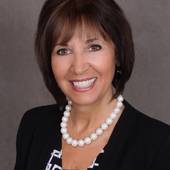|
Where's Your Pooled 1031 Exchange Account Invested?
I'm adamantly against pooling, yet most intermediaries pool their client's money. By pooling, I mean the placing of all the client's exchange funds into one account. The reason they pool is that by investing a larger amount of money, they're able to obtain a greater return. Of course the intermediary is going to keep most of the interest, which is the whole point of pooling to begin with. In fact, the more the account earns, the more they earn.
The very real and obvious incentive then is for the intermediary to maximize the return. And as we all know: the greater the yield, the greater the risk. Now, don't get me wrong; I am not saying these intermediaries too aggressive on purpose, or that they even know there is any risk in what they are doing. Yet there may very well be greater problems in their investments than even they know about. And if they DO know, they certainly aren't going to tell you.
Let's assume that the entire account is invested in a so-called money market account. I say so-called because there are different types of money market accounts (how many of you even knew that?). What you think is a true money market account may, in fact, be something entirely different. The SEC limits the investments of a true money market account to short-term instruments that mature in less than 13 months, with the average maturity of the fund less than 90 days.
But then there are enhanced money market funds which are allowed to invest in other types of securities in order to 'enhance' their return. This might be sub-prime loans (now worth pennies on the dollar) or it might be structured investment vehicles: entities that issue commercial paper. What if the issuer can't repay their outstanding paper?
So what intermediary would be so foolish as to use enhanced money market funds? Unfortunately, many have indeed invested their clients' exchange proceeds with such "safe" big-name companies as Legg Mason, Sun Trust, Wachovia, Bank of America, Northern Trust and the Janus Funds -- all of which have recently had to put money into their money market funds (even though they are not legally required to do so) to keep them solvent.
Not all of the big names have stepped up to take care of the problems in their own funds. In the past, both Community Bankers Mutual Fund money market account and General Electric's Asset Management account closed and paid investors only 96 cents on the dollar. The State of Florida, which operates an enhanced money market account for its communities which have excess property tax funds to invest, previously suspended withdrawals completely. It didn't have enough liquid cash because of problems with the enhancements in their fund.
Wait, it gets worse. There is also an investment vehicle called Auction Rate Securities, (or ARS's) which are long-term maturity vehicles that until recently had weekly auctions where purchases and sales were transacted and interest rates were adjusted. These auctions have ceased, making these securities unmarketable. This is what the title company's pooled exchange account was invested in, and which ultimately brought down the company - and this isn't the only 1031 pooled account, and it isn't the only major title company intermediary that had purchased ARS's!
Interestingly, one of the most common responses many of the intermediaries (including the one that just filed for bankruptcy) offer when asked about possible problems with their pooled account is "we're too big to have problems with our account." Oh really? Bigger than General Electric? Bigger than the State of Florida? Or Enron, WorldCom, Bear Stearns, Countrywide or AIG?
Pooled accounts can bring down even billion dollar companies - remember that the next time you let your intermediary pool your money. Instead, make sure that your exchange funds are in their own account, in an FDIC member bank, and that the name of the account includes the words "for the benefit of" and your name in order to make it clear they're your funds. You may earn less interest, but at least your funds will be secure.
Written by Gary Gorman
January 21, 2009
LETS HOPE FOR
A VERY HAPPY
PROSPEROUS NEW YEAR -- Contact Us
|





Comments(0)